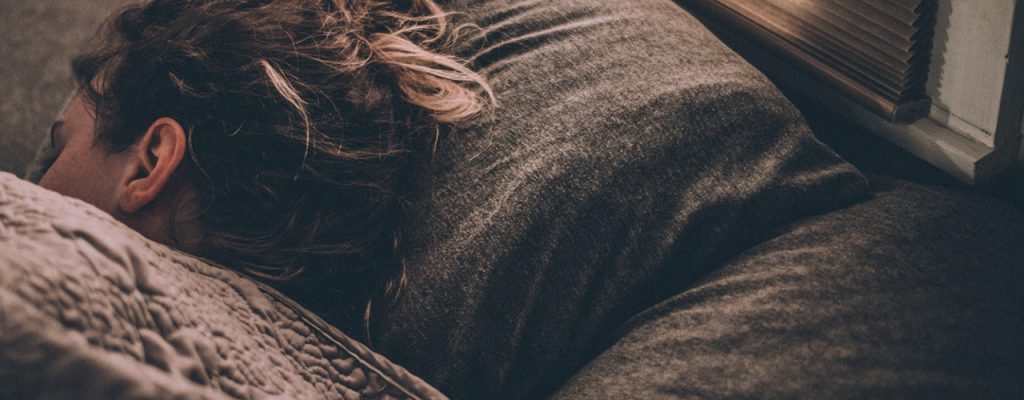By: Cynthia Macdonald
7 Nov, 2018

We’ve all heard that people function best on seven to eight hours of nightly sleep. But did you know that more sleep than that can be just as bad as less? Neuroscientists at Western University’s Brain and Mind Institute have uncovered this and many more interesting facts about one of our most desperately-needed natural resources, in what’s been dubbed the World’s Largest Sleep Study.
The research team was led by Adrian Owen, co-director of CIFAR’s Azrieli Program in Brain, Mind & Consciousness. Well over 10,000 volunteers from all over the world provided information about their sleep habits, then agreed to submit to a variety of tests designed to measure the effect of sleep on memory, decision-making and other brain functions. Here, Owen discusses some of the more striking findings of his study, which was published in the journal SLEEP on October 8.
CIFAR: This study confirms what we’ve all been told – that seven to eight hours of sleep is the gold standard.
Adrian Owen: I slightly regret leading with that number: people have said, don’t we know that already? But what I think’s really interesting is that most people aren’t getting that amount. The average number reported was 6.4 hours, so half our sample were getting less than that.
CIFAR: Another thing that surprised me was that if you sleep for only four hours, you’ll perform the next day as if you were nine years older.
Adrian Owen: We were particularly interested in the four-hour idea, because Donald Trump stated that he only sleeps four hours a night, and Margaret Thatcher said the same thing. I think it’s a matter of pride for people to say hey, I only get four hours of sleep a night and I’m doing fine. We tried to find a way of articulating the problem with that in a way that the public would understand. One way to do it was to say those people are performing as if they were nine years older than they actually are. But we could have done it with IQ as well – it’s equivalent to a loss of about four IQ points.
CIFAR: How does a chronic lack of sleep affect our functioning?
Adrian Owen: Sleep-deprived people perform particularly badly on tests involving decision making, problem solving, the sort of things that get us through our daily lives. We found almost no memory effects – memory was actually not really affected.
This probably explains a lot about how people get by. I spend a lot of my life working on the relationship between the frontal lobes and the temporal lobes. The temporal lobes are very generally our memory centers, while the frontal lobes are involved in decision making, in planning, in anticipating what’s going to happen.
You can get by without one or the other of these things. If your memory is perfectly fine, you can stumble through life just by remembering what you’re supposed to be doing. But those aren’t the people who go on to run Amazon and Apple. In fact, those people might have very poor memories. You can be a senior executive of a very successful company with a poor memory, as long as you have very good frontal lobes.
CIFAR: What did you discover about the relationship between age and sleep?
The effects of partial sleep deprivation on the elderly are exactly the same as they are on the young. So I think the prevailing view up until now has been old people need less sleep. They don’t need less sleep: they sleep less and they are cognitively impaired, is actually what we found.
Adrian Owen: We did find that people sleep less as they get older and that’s a well known effect. What we didn’t find – and I think this is novel – is that sleeping less is okay. The effects of partial sleep deprivation on the elderly are exactly the same as they are on the young. So I think the prevailing view up until now has been old people need less sleep. They don’t need less sleep: they sleep less and they are cognitively impaired, is actually what we found.
CIFAR: If sleep is so important, why don’t people get enough?
Adrian Owen: It’s probably a practical thing – sleep feels like an interruption to people because they can’t do all the stuff they want to do. We obviously all need it and at some level we enjoy it, because you feel better afterwards, particularly if you’re very tired. On the other hand, it is a bit of an interruption for those of us who’ve been watching, say, three seasons of Peaky Blinders and want to see the last episode!
CIFAR: I’ve always wondered whether people are somewhat afraid of sleep, in that it renders you unconscious and takes you away from the excitement of life. You’re well known for your research on people who are unconscious – do sleepers fall into that category?
Adrian Owen: It’s a really murky area. If you talk to sleep researchers they don’t agree themselves on whether sleep is a conscious or unconscious state. For me, dreaming is a conscious experience, because it’s us interpreting the world. When we dream, we move through time and space, and relate our perception of information to our memories and assumptions about the future. In dreams you make decisions; in dreams things happen. So I refer to sleep as an altered state of consciousness: not the same as being awake, but also not the same as being deeply anesthetized.